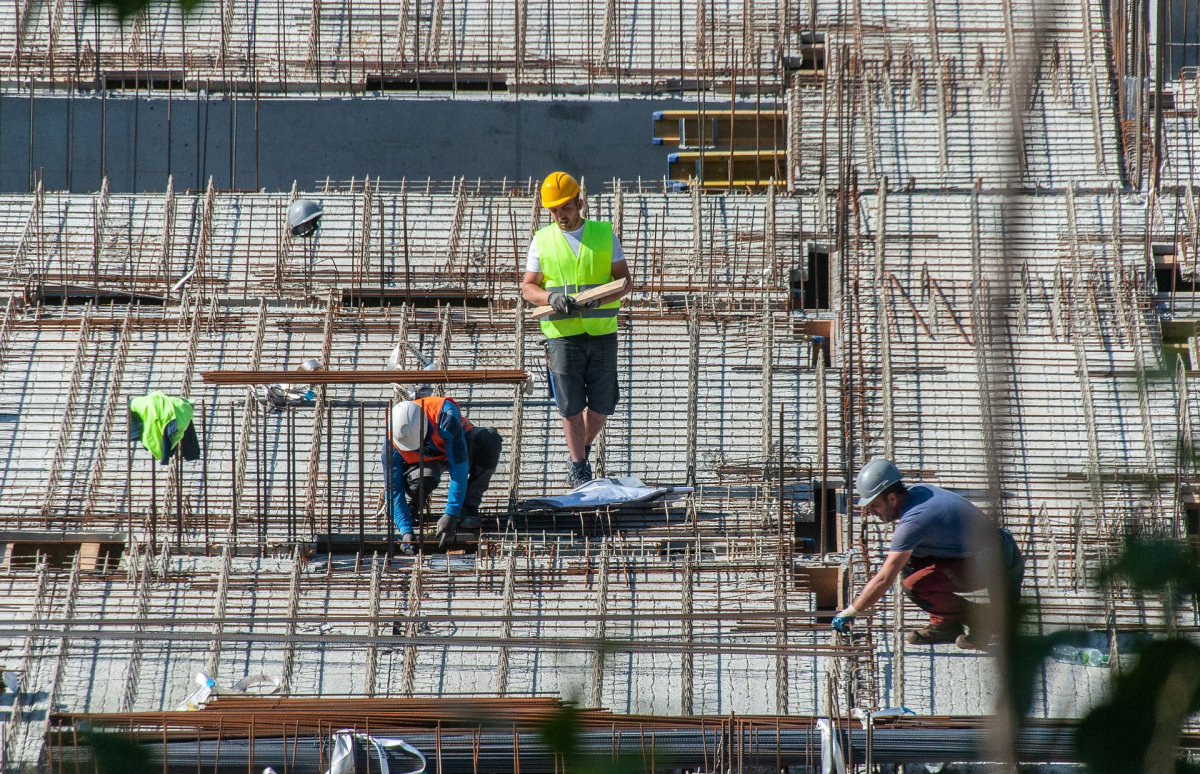Thank you for helping us meet our fundraising goal!
There are plenty of reasons why Liberals keep losing byelections in their urban strongholds, from Justin Trudeau’s continued presence as leader to Conservative Leader Pierre Poilievre’s relentless (and often disingenuous) focus on the rising cost of living. But the biggest factor behind the Liberal collapse is also their biggest opportunity to reverse it: housing. Canadians, and especially younger ones, are dead tired of dealing with a housing market that continues to punish renters and prospective buyers while rewarding older homeowners with a seemingly endless bounty of price appreciation and untaxed capital gains. It’s not a coincidence, I don’t think, that Liberal support has cratered in the under-35 demographic while remaining comparatively robust among those 65 and over.
The good news, I suppose, is that rents and home prices have flatlined over the last year. Rents are actually down year-over-year in markets like Toronto and Vancouver, while house prices have fallen from their 2022 high. The bad news, both for younger Canadians and Liberal politicians, is that both are still far too high. In Toronto, for example, average rents on all property types were $2,719 in July, while they checked in at $3,101 in Vancouver. House prices aren’t any better. In the Greater Toronto Area — which includes the suburbs, remember — the benchmark price is a staggering $1.082 million, while the average home in Greater Vancouver costs a measly $1.25 million.
The Liberal government isn’t totally deaf to this untenable state of affairs, which is why Housing Minister Sean Fraser has spent the last year talking about the importance of increasing homebuilding and new supply. It’s also why they loosened mortgage rules that will allow first-time buyers and all buyers of new homes to access 30-year mortgages as well as increasing the cap on insured mortgages to $1.5 million. But while these measures will probably help increase supply and homebuilding activity over the medium term, enabling young Canadians to take on more debt isn’t a vote winner.
Here’s what would resonate with an understandably angry young demographic: policies that actually lower housing prices. As a recent Abacus Data poll showed, 66 per cent of Canadians would be more likely to support a party that explicitly supports policies to lower housing prices, with only 13 per cent saying they’d be less likely to vote for that party. And when it comes to voters under 30 — you know, the demographic the Liberals are currently dead to — the number who would be more open to supporting a party that actually tried to lower housing prices increases to 76 per cent.
There’s no magic lever for doing this outside of the government aggressively taxing the capital gains that have accrued in people’s homes, and that’s the surest path to political suicide in Canada outside of attacking Celine Dion. But the Liberals could start talking about this issue more honestly than they have in the past. Back in May, when Justin Trudeau was on the Globe and Mail’s City Space podcast, he said that, “Housing needs to retain its value. It’s a huge part of people’s potential for retirement and future nest egg.”
That’s just not going to cut it. Voters may not be housing market analysts but most understand intuitively that there’s no free lunch here. You can’t simultaneously make housing more affordable and protect the capital gains that have accrued in people’s homes. One inevitably feeds into the other, and for too long we’ve prioritized the latter.
Now, it’s time to make a different choice. The Liberals — and New Democrats, for that matter — should make it abundantly clear that they intend to lower the price of housing in Canada. They can do that with the sort of pro-supply measures they’ve already adopted, along with any number of other potential policies that would reduce the cost of new homebuilding and increase the supply of units that younger buyers actually want.
They should also set an example for the rest of the country in how they talk about the housing market. As Generation Squeeze founder Paul Kershaw noted in a recent column, when we describe falling prices as “weakness” and rising ones as “strength,” we’re effectively choosing to align ourselves with the interests of existing homeowners. “Since gains like mine come at the cost of housing insecurity for many equally hard-working folks who follow in our footsteps,” he writes, “Canadian voters must signal once and for all that we have a single mission for home prices. We don’t want them to rise any longer, and we will celebrate when prices stall.”
This mission to lower housing prices in Canada should be part of a broader economic plan for the Liberals aimed at increasing our labour productivity. Canada’s long-standing obsession with housing, after all, has been a key reason why that productivity is consistently lower than the United States and other comparable peer nations. As Alberta Central noted in a recent analysis, residential investment in Canada now sits at 8.5 per cent of GDP, which is more than double the figure in the United States and three percentage points higher than Australia. In other words, capital that could be getting invested in more productive areas — machinery and technology, for example — is instead getting sucked into our national housing vortex and used to flip, fluff, and otherwise churn the real esate market.
A national push to lower housing prices wouldn’t be greeted with universal acclaim, of course. Not all homeowners are as wise or selfless as Kershaw, who describes the seven-figure increase in the value of his Vancouver home as “lazy wealth accumulation.” But as pundit Evan Scrimshaw noted in a piece of his own a while back, “there can be no less sympathetic group of people than people with fully paid off houses complaining about price declines. I’d pretend to be sorry you only netted $1.3 million on your Rosedale house and not $1.6 million, but I’m not.”
I doubt most Canadians would either. It’s not clear whether they would trust the federal government to bring down the housing prices the Liberals have spent the better part of nine years helping inflate. But one thing does seem certain: the sooner they start actually trying, the better their chances will be in the big cities where they keep losing byelections.






Comments
Everyone keeps talking about building more homes, when there is a glut currently in the system of new condo units and new homes unsold. No builder in their right mind is going to build more if they aren't selling. On top of that, you have re-sales sitting on the market for months unsold.
Rents are ridiculous and makes it difficult for anyone saving for a down payment to buy a home unattainable. Some of this is just pure greed of the owners of these properties.
The reality is that home prices have always increased over time and subject to market adjustments from time to time. But to expect them to price drop sufficiently is nice on paper, but very unlikely to happen. The same is true with the cost of building materials to lower building costs. It is bad enough that some builders cut corners or use cheap/poor trades people, to sell at a lower price.
These days given the prices, it will take more than a life time to pay off the mortgage on a home, to the point it works out just as bad as paying rent forever. Let's also keep in mind that wages have not kept up with the cost of living for decades, while the companies them selves make record profits or increased profits year over year. None of which, has made it's way to the people who provide the labour.
I am tired of the under 65 complaining of those over 65 who worked hard all their life with owning a home and have built up equity as a result. It seems Max is no different in his judgement of older Canadians.
What I see with the under 65 complainers is they desire to buy a 3,500+ sq ft home from day one than starting small and working their way up like my generation. The under 65 seem to scoff at this strategy to home ownership. We bought what we could afford, built up equity and traded up for something bigger as the need arose. It seems these folks appear entitled and expect everything to be easy and attainable day one. Well, welcome to the real world of capitalism, where hard work and investing is required to achieve your goals. There is no golden goose nor are you automatically entitled to everything without putting in your own effort. Stop complaining about the over 65 being the problem.
The facile trope that older Canadians are somehow the enemy because they happen to have bought a house to live in decades ago is not only fuelling unwarranted hostility and division, but it really isn't the main issue. There are structural reasons, but one is investment. When the Bank of Canada, dutifully following the US lead after the Freddie Mac fiasco and 9/11 reduced interest rates to about zero, few options remained for any reasonable investment returns, except real estate. Here are a few statistics from 2020:
The percentage of Canadian housing stock that is investor owned in 2020. In British Columbia, 16.5% of houses were investor-owned and 36.3% of condos were investor-owned. In Manitoba, 16.2% of houses were investor-owned and 29.3% of condos were investor-owned. In New Brunswick, 14.4% of houses were investor-owned and 22.6% of condos were investor-owned. In Nova Scotia, 20.1% of houses were investor-owned and 36.5% of condos were investor-owned. In Ontario, 15% of houses were investor-owned and 42% of condos were investor-owned.
If you don't identify the problem correctly, you cannot solve it...and, really, Mr. Fawcett, you should know better than to simply amplify unwarranted prejudice which can, as we see repeatedly, cause harm.
First look at the model for growth in the economy which is increasing population higher GDP, this has always been correlation not causation, i.e. Japan with a declining population still has positive GDP growth mainly because they are the leading edge of adopting automation of jobs, which by 2030 will hit Canada's job market big time. High immigration rates are not needed = less demand for housing.
Second look at Singapore where the land for housing is on 99 year leases. Land trusts could work in Canada a real 2-3% rate of return would be snaped up by pension funds
The trouble with land-lease here in Canada or at least in Ontario from first hand experience looking into them, it appears attractive at first, then you look into the house prices on the leased-land and it is almost as bad as an outright purchase of house and land. Most require paying maintenance fees, and typically includes a money pit community centre included in the fee. I find they end up more expensive in the end.
I don't believe it was always that bad from a cost perspective, but has become that way in recent years. A condo unit can be that bad as well with maintenance fees, if they include a money pit community centre. It is hard to find one that doesn't included one.
To make both a little cheaper option, they should run these as a membership or opt in bases. So for those of us that have zero use for a community centre, aren't subsidizing everyone else's usage and reduce our cost.
Now if the government was to take on land leases and get away from corps only interested in profits & ongoing revenue, that could make a bit of difference on costs. But the way things work currently, I am not sure there would be enough government owned land to make it work at this stage, given large developers have bought up most of it year ago.
Agreed. Singapore is a great example of workable/affordable options.
This is a complex problem Max and not limited to Canada. It's a global issue. (Sorry folks, the Feds are not solely to blame here.) I'm in the building industry and connected globally through an NFP organization. Housing shortage/affordability exists in the US, UK, Australia, Spain, Portugal etc. That alone should spark some curiosity - like what's common to all these countries: housing has become a commodity since the 2008/09 crash. REITs and PE have been buying up units, S/F and condos for property value - not necessarily for occupancy); owners have become 'hoteliers' through the short-term rental game (now highly restricted in BC and out-right banned in Barcelona as residents had nowhere to live.) These investments are NOT limited to one particular generation. Land planning practices have favoured S/F, single use and vehicles. Hence, thousands of kilometres of W/S and roads to build & maintain; NIMBYs; These two influences alone create an extremely convoluted municipal approval/permitting process lasting years and driving up development costs that get assigned to individual units either rental or purchase. (I'm still exploring the value of Official Community Plans as they don';t seem to guide anything.) Construction material costs are inflated; there is a shortage of construction trades; Boomers are retiring; the construction industry productivity has been flat for decades for various reasons. It's a complex problem!! Fortunately, there is significant collaboration between/within countries working toward fixes. Some are political, some are industry based. The government closest to solutions are municipalities and provinces (States), although the CCA has been lobbying the Feds for more immigration.
This situation is a lead-in to the lack of adequate investment in urban infrastructure - out-of-sight, out-of-mind. This is everyone's problem and as intense weather events increase, the disruption and costs will skyrocket and insurance - if available may not be affordable. (See: Calgary floods & hail damage; Toronto floods; Montreal floods ...)
Check-out these organizations: Strong Towns, Smart Density (US & CDN) or watch a video or two by About Here (CDN)
However, Moosemin Sask is incentivizing housing construction/ownership by $30K grants for anyone interested in living there. (It's a great town, and with 'work-from-anywhere' technology - an affordable possibility for any age.)
Oh Max. I thought so much better of your analytical brian.
Blame Boomers is such a silly argument and so wrong.
And such a happy convention for those who are truly diverting society.
Well, we ll soon be gone. I m in the first tranche and we re all on borrowed time now. Leaving what we worked so hard for behind. For you?
The ones born from 56 on, the rich ones, are next.
Seriously, hang on a decade.
Then who will you blame?
Like most of the previous commenters I, too, am mighty tired of Gen Xers like Max telling us seniors / Boomers are to blame for the housing affordability crisis. Max has not presented any solutions, except for a cursory reference to taxing the bejeezus out of said home-owning seniors, after decades of paying down their mortgage, tolerating bad tenants (mortgage helpers) and suffering through 20 years of renovations. No one asked them to jack up prices and thus pay way more property tax (something Max prefers not to mention), only to have younger commenters suggest the capital gain be taxed to the heavens and therein drive several million seniors into destitution while losing their family home. A home is not a commodity to all seniors who've put in the financial pain and sweat equity for decades.
There are solutions. If the federal government wants more homes then it must stop talking incessantly about it and start building them. Vienna's housing stock is roughly 60% state-owned, even the unsubsidized market-based homes and beautiful historic apartment blocks are owned by the government. This follows 85 years of direct government investment to the tune of hundreds of billions of Euros every year, a policy originating from the first half of last century when the Communist Party was in power during, I believe, the 1930s.
Vienna is an outlier, but it offers partial solutions such as non-market, non-profit housing that sets rents at break even levels. Building 250,000 non-profit rentals a year for, say a decade, will result in a critical mass of affordable rental housing that would counter the housing market's rather steep value increase. Cities have land they can donate, therein eliminating the land cost from the rent. Provinces can participate, but given the conservative bent of many of them I wouldn't count on that. Construction techniques can include mass timber and exemplary energy efficiency to keep construction and operating costs reasonable. Government ministries can work directly with architects and building contractors and skip over any notion of involving developers in complicated deals, and avoid giving design control to the private sector in design build contracts. Mid-rise buildings are probably the best suited form because they can be placed reasonably close to transit hubs without towering up, are efficient forms of land use at human scales, and offer a population base large enough to support local stores. Cities that foster walkable neighbourhoods should be rewarded with more affordable rental housing. The amortization periods can be stretched generously outward to minimize the monthly rent charges, which would include riders for maintenance, depreciation and replacement costs. Probably 25% to 30% could be subsidized and a renewed co-op model of self management could be revived at scale.
Max wants housing prices to come down. So far he has not presented any methods to do that. It may very well be that high housing prices in our cities are here to stay, just like other cities in the world where home owning seniors cannot be blamed for their rise over generations. It's ludicrous to even suggest that. If blame is actually necessary, then look no further at governments that rejected public involvement in housing and instead fostered bad urban planning and who entertained international real estate speculators who donated money and who preferred shovelling hundreds of billions in subsidies into profitable private enterprises like the oil industry.
It's a matter of priorities.
The real problem with home values dropping is not older voters who paid off their mortgages but those who are still paying large mortgages based on the original loan. If your $800K property drops in value to, say $200k, and you still owe $600k, you are underwater. At that point, you're better off sticking the keys through the mail slot and renting somewhere, and that is exactly what was happening during sub-prime in the US. Mind you to collapse home values to that degree, you'd have to drastically increase supply. The supply is tied to the cost of building (which is going up as is everything else), and the cost of the land which isn't going down because they aren't exactly producing new land...with sea levels rising, we'll have even less of it.